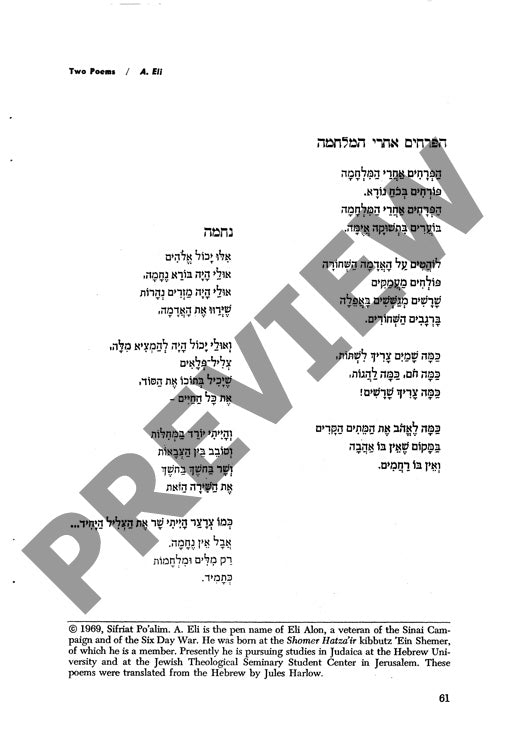The Flowers After War Two Poems
Couldn't load pickup availability
In the scarred landscape of post-war Israeli poetry, A. Eli's verses capture the raw psychological terrain of a soldier-poet wrestling with trauma and regeneration. Two poems, "The Flowers After the War" and "Consolation," translated from Hebrew by Jules Harlow, offer stark testimony from Eli's experiences in the Sinai Campaign and Six Day War. Through botanical imagery, the first poem portrays life's violent resurgence in war-torn soil, where flowers "flower with fearsome force" and "burn with dreadful desire" on blackened earth. The second poem confronts the absence of divine solace, imagining potential forms of godly comfort—rivers, sacred words, healing songs—only to conclude that "there is no consolation. Only words and wars as always." Close textual analysis of both the original Hebrew verses and their English translations reveals how contemporary Israeli war poetry confronts existential questions of survival, regeneration, and spiritual emptiness in the wake of repeated military conflicts, contributing to the broader corpus of Hebrew literature addressing war's psychological aftermath.

More Information
-
Physical Description
-
Publication Information
Published 1970
ISBN
-
Publication Credits
A. Eli

